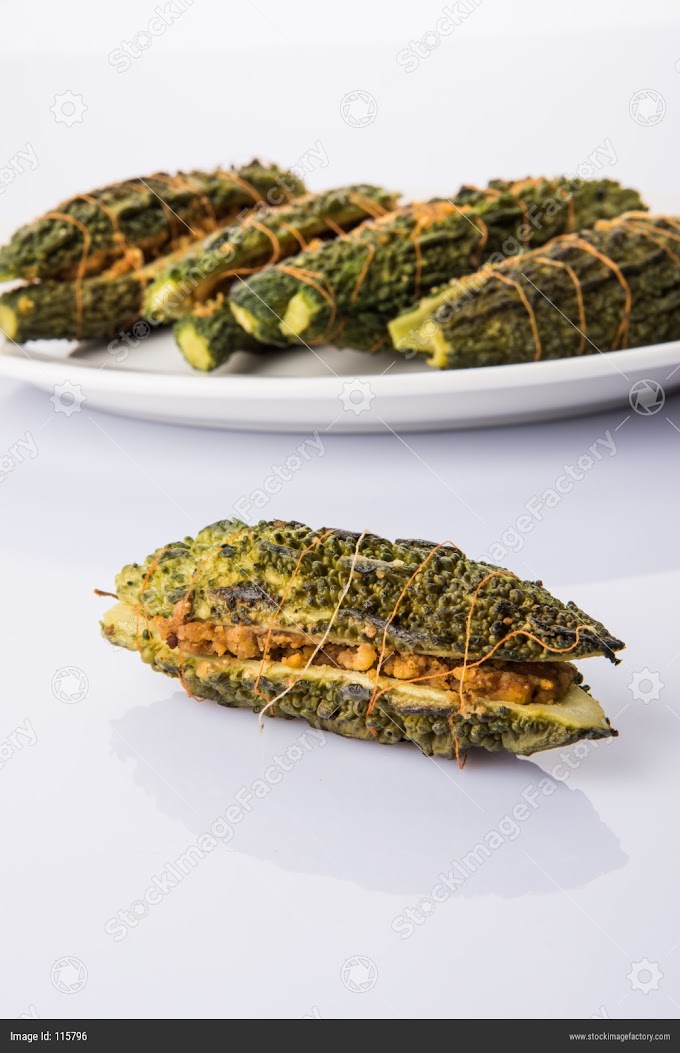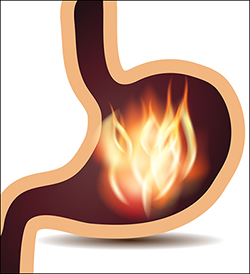IMPORTANCE OF AGNI, DHATUS [TISSUES] AND MALAS [WASTE MATERIALS] in Ayurveda
By-
Dr kavita vyas [ayurveda consultant)
While giving definition of health Ayurveda says “ Health means equilibrium of Dosha (Samdosha),equilibrium of Agni (samagni), equilibrium of vital tissues (Samdhatu), and also proper evacuation of malas(waste products).Along with these the happiness of mind ,senses and spirit is called as healthy state of a person.
 |
| Jatharagni |
So in this definition importance is given to fire(agni). Ayurveda considers thirteen types of agni (Fire) in body. (5 fire or agni for metabolism of air, ether, water, fire and earth element in the body, 7 fire or agni of seven vital Tissues (Dhatu) and 1 fire or agni is digestive fire. We are giving here detail about digestive fire, because it is more obviously seen by us. Other agnis work at subtle level of the body.
Agni
Agni is the biological fire that governs metabolism. It is similar in its function to Pitta and can be considered an integral part of the ‘Pitta’ system in the body. Which Functioning as a catalytic agent in digestion and metabolism. Pitta contains heat energy which helps digestion. This heat energy is ‘Agni’.’ Pitta’ and ‘Agni’ are essentially the same with this subtle difference; Pitta is the container and Agni is the content.
Pitta manifests in the stomach as the gastric fire or Jatharagni. Agni (Jatharagni) is acidic in nature and its action breaks down the food and stimulates digestion. Agni is also subtly related to the movement of ‘Vata’ because bodily air enkindles bodily fire. In every tissue and cell agni is present and necessary for maintaining the nutrition of the tissues and the maintenance of the auto-immune mechanism. Agnidestroys micro-organisms, foreign bacteria and toxins in the stomach and small & large intestines. In this way, it protects the flora in these organs.
Longevity depends upon ‘Agni’. Intelligence, understanding, perception and comprehension are also the functions of Agni. The color of the skin is maintained by ‘Agni’. As long as Agni is functioning properly, the processes of breaking down food and absorbing and assimilating it in to the body will operate smoothly.
When Agni becomes impaired because of an imbalance in the tri-dosha, the metabolism is drastically affected. The body’s resistance and immune system are impaired. Food components remain undigested and unabsorbed. They accumulate in the large intestine turning in to a heterogeneous, foul-smelling, sticky substance. This material which is called ‘Ama’, clogs the intestines and other channels, such as capillaries and blood vessels. It eventually undergoes many chemical changes which create toxins. These toxins are absorbed in to the blood and enter the general circulation.
They eventually accumulate in the weaker parts of the body, where they create contraction, clogging, stagnation and weakeness of the organs and reduce the immune mechanism of the respective tissues. Finally a disease condition manifests in the affected organs and is identified as arthritis, diabetes, heart disease and so on.
Longevity depends upon ‘Agni’. Intelligence, understanding, perception and comprehension are also the functions of Agni. The color of the skin is maintained by ‘Agni’. As long as Agni is functioning properly, the processes of breaking down food and absorbing and assimilating it in to the body will operate smoothly.
When Agni becomes impaired because of an imbalance in the tri-dosha, the metabolism is drastically affected. The body’s resistance and immune system are impaired. Food components remain undigested and unabsorbed. They accumulate in the large intestine turning in to a heterogeneous, foul-smelling, sticky substance. This material which is called ‘Ama’, clogs the intestines and other channels, such as capillaries and blood vessels. It eventually undergoes many chemical changes which create toxins. These toxins are absorbed in to the blood and enter the general circulation.
They eventually accumulate in the weaker parts of the body, where they create contraction, clogging, stagnation and weakeness of the organs and reduce the immune mechanism of the respective tissues. Finally a disease condition manifests in the affected organs and is identified as arthritis, diabetes, heart disease and so on.
 |
| Agnidushti hetu |
The root of all disease is ‘Ama’(undigested food mass). There are many causes for the development of ‘Ama’ for example whenever incompatible foods are ingested, ‘agni’ will be directly affected as result of the toxins or will be indirectly affected as a result of the toxins or ‘Ama’ created from these poorly digested foods. Ama develops when agni’s function is retarded; however over active agni is also detrimental. When ‘agni’ becomes hyperactive, the digestive process burns away, through over combustion, the normal biological nutrients in the food and emaciation results. This condition also lowers the body’s immunity.
The Seven Dhatus
The human body consists of seven basic and vital tissues called ‘Dhatus’. The Sanskrit word dhatu means, constructing element. These seven dhatus are responsible for the entire structure of the body. The dhatus maintain the functions of the different organs, systems and vital parts of the body. They play a very important role in the development and nourishment of the body.
The dhatus are also part of the biological protective mechanism, with the help of ‘agni’, they are responsible for the immune mechanism. When one dhatu is defective it affects the successive dhatu as each dhatu receives its nourishment from the previous dhatu . The following are the seven dhatus in serial order.
1) Rasa (Plasma)- Contains nutrients from digested food and nourishes all the tissues, organs and systems. Kapha is considered as side product of this dhatu.
Functions
General nourishment/maintaining health [Preenana], Blood nourishing [Rakta-pushti],Preservation [Dharana]Giving satisfaction or refreshment [Tushti]
2) Rakta (Blood)-Governs oxygenation in all tissues and vital organs and maintains life. Pitta is considered as side product of this dhatu.
Functions
Imparts colour [Varnaprasadana] Nourishes muscles [Mansa pushti], Enliving [Jeevanam] Responsible for tactile sensation [Sparsha-gnanam], Produces growth [Vriddhi].
3) Mansa (Muscle)-Covers the delicate vital organs, performs the movements of the joints and maintains the physical strength of the body. Ear wax is considered as side product of this dhatu.
Functions
Nourishes body [Sharira pushti] Nourishes medas [Medasa pushti] Covers the body [Sarira lepa] Nourishes malas [Mala pushti]
4) Meda (Fat)-Maintains the lubrication and oiliness of all the tissues. Sweat is considered as side product of this dhatu.
Functions- Oleating [Snehana], Produces sweat [Sweda karaka], Nourishes osseous tissues[Asthi pushti] Secures steadiness [Dradhatvam].
5) Asthi (Bone)-Gives support to the body structure. Nails and hairs are considered as side product of this dhatu.
Functions- Supporting [Dharana] Nourishing majja [Majja pushti] Supports mamsa [Mamsa alambaka].
6) Majja (Marrow & nerves)-Fills up the bony spaces and carries motor and sensory impulses. Waste secretion from the eye is considered as side product of this dhatu.
Functions-Snehabalam] Repairs bone [Asthi puranam] Nourishes sukra [Sukra pushti].
7) Shukra and Artava (Reproductive tissues)-Contain the ingredients of all tissues and are responsible for reproduction. According to sharangdher samhita Oja(the essential energy) is considered as waste product of this dhatu.
Functions-Causative of faetus [Garbhotpadaka] Ejaculative sensation [Chyavana] Fondness [Priti] Strengthens the body [Dehabalama].
The seven dhatus are understood in a natural, biological, serial order of manifestation. The post digestion of food, called nutrient plasma (Aahar rasa), contains the nutrition for all the dhatus. This nutrient plasma is transformed and nourished with the help of heat, called as dhatwagni of each respective dhatu(Rasagni, Raktagni, Mansagni—etc.) Rasa is transformed in to Rakta (with the help of Raktagni) ; which is further manifested in to mansa, then mansa to med, meda to asthi, asthi to majja, and majja to shukra. It is said that in 7 days our food converts in to final shukra dhatu.
 |
| Malas |
The Three Malas
The body produces three waste products, or malas : 1) Feces 2) Urine 3) Sweat; the production and elimination of these are absolutely vital to health.. Though these are considered bodily waste products, the urine and feces are not totally waste. They are in fact to some extent essential to the physiological functioning of their respective organs.
1) Feces
This supply nutrition through intestinal tissues; many nutrients remain in the feces after digestion, later after these are absorbed, the feces are eliminated. Feces also give strength to the large intestine and maintain its tone. If a person has no feces, the intestine will collapse.
2) Urine
The urinary system removes the water, salt and nitrogenous wastes of the body. Urine helps to maintain the normal concentration of water, electrolytes with in the body fluids. The functioning of this mala depends upon the water intake, diet, environmental temperature, mental states and physical condition of the individual.
If the body retains water, the urine will be scanty and this water will accumulate in the tissues. This condition in turn, will affect the blood and increase the blood pressure, so balanced urine production is important for the maintenance of blood pressure and volume. Ayurvedic text states that human urine is a natural laxative that detoxifies poisons in the system and helps absorption in the large intestine as well as the elimination of feces. If one takes a cup of urine (Passed in main stream) every morning, it will help to clean and detoxify the large intestine.
It helps to regulate the volume of body fluid and aids in the control of red blood cell production and blood pressure. Thus the urine helps to maintain the balance of the three humors (Vata,Pitta and Kapha) and water.
3) Sweat
Perspiration is a by product of fatty tissue. Sweating is necessary to regulate the body temperature. Sweat keeps the skin soft maintains the flora of the pores of the skin and also maintainsskin elasticity and tone.
There is a special relationship between the skin and the kidneys, since the excretion of watery waste is primarily the function of these two organs. Thus perspiration is indirectly related to the formation of urine. In summer people perspire profusely, but their urination is reduced because waste products are eliminated through perspiration. Thus it is necessary that the production of perspiration and urine be in balance. Diabetes, psoriasis, dermatitis and ascites are examples of diseases resulting from an imbalance of perspiration and urine in the body.
 |
| Immunity |
This shukra dhatu transform into ojas which makes immunity strong in the body and gives strength to the mind.


![ACHARA RASAYAN in Ayurveda [Behavioural regimen which acts as Rejuvenation]](https://blogger.googleusercontent.com/img/b/R29vZ2xl/AVvXsEgWmm8CupFTu_vyWDtEsY9EdG8A-ZlQLOdx6lrm4qnctDJ1bli1zR7MQMebwL79XhXowikAcqIk-al0sQubhTttS6H69e3zIBK-UORc5BFH9eaWwkznPG-yWHqoQ-za1gNhVqwgwomwUiKA/w680/Screenshot_20191227-154658_YouTube.jpg)

0 Comments